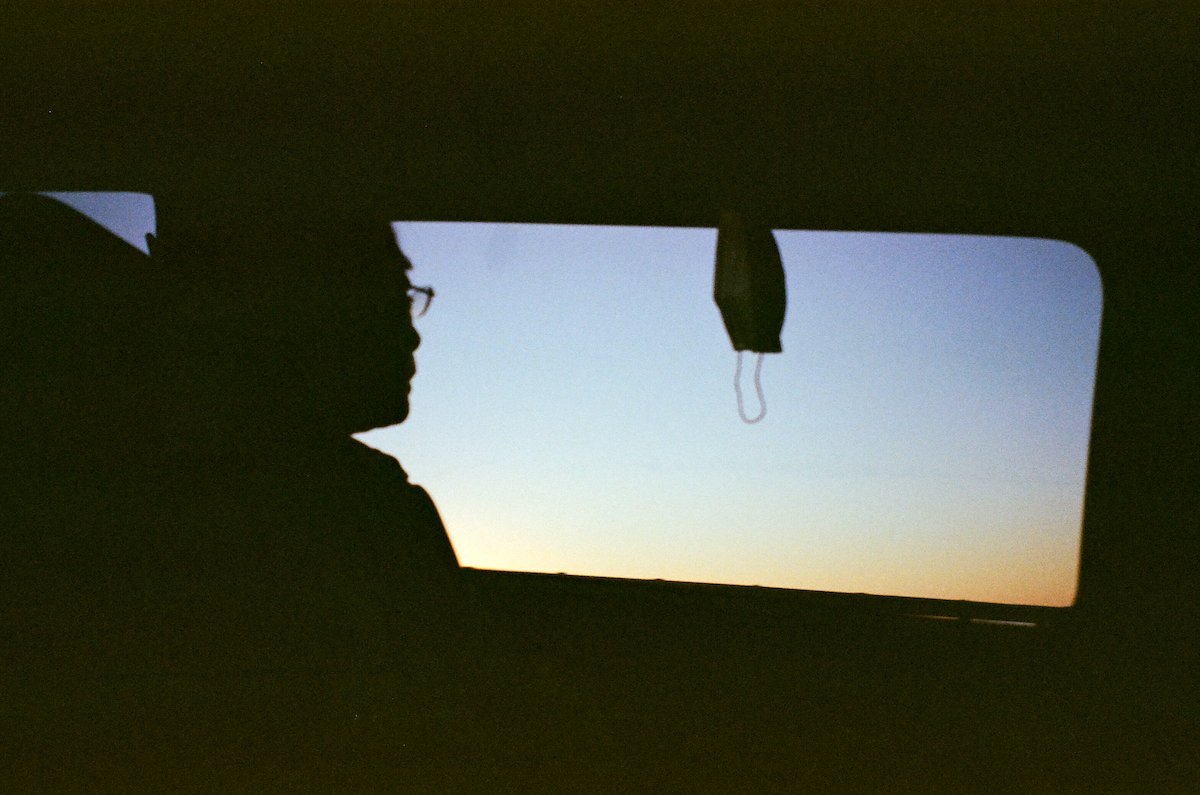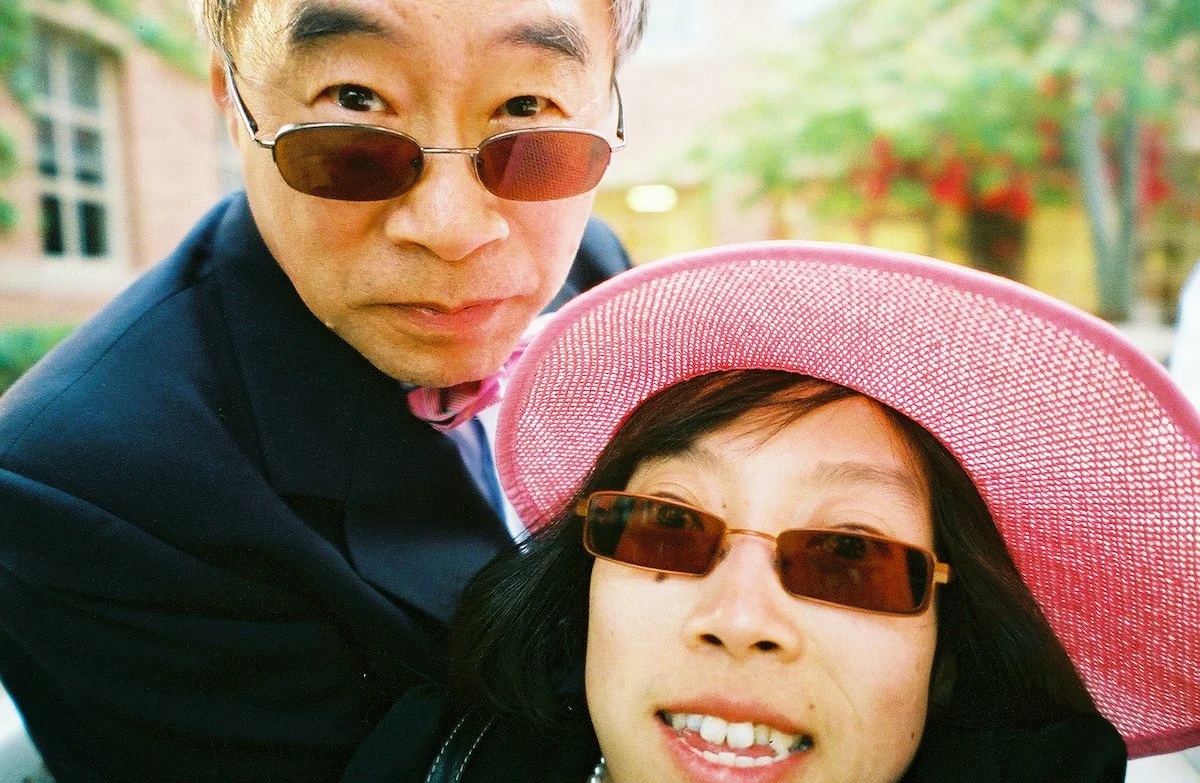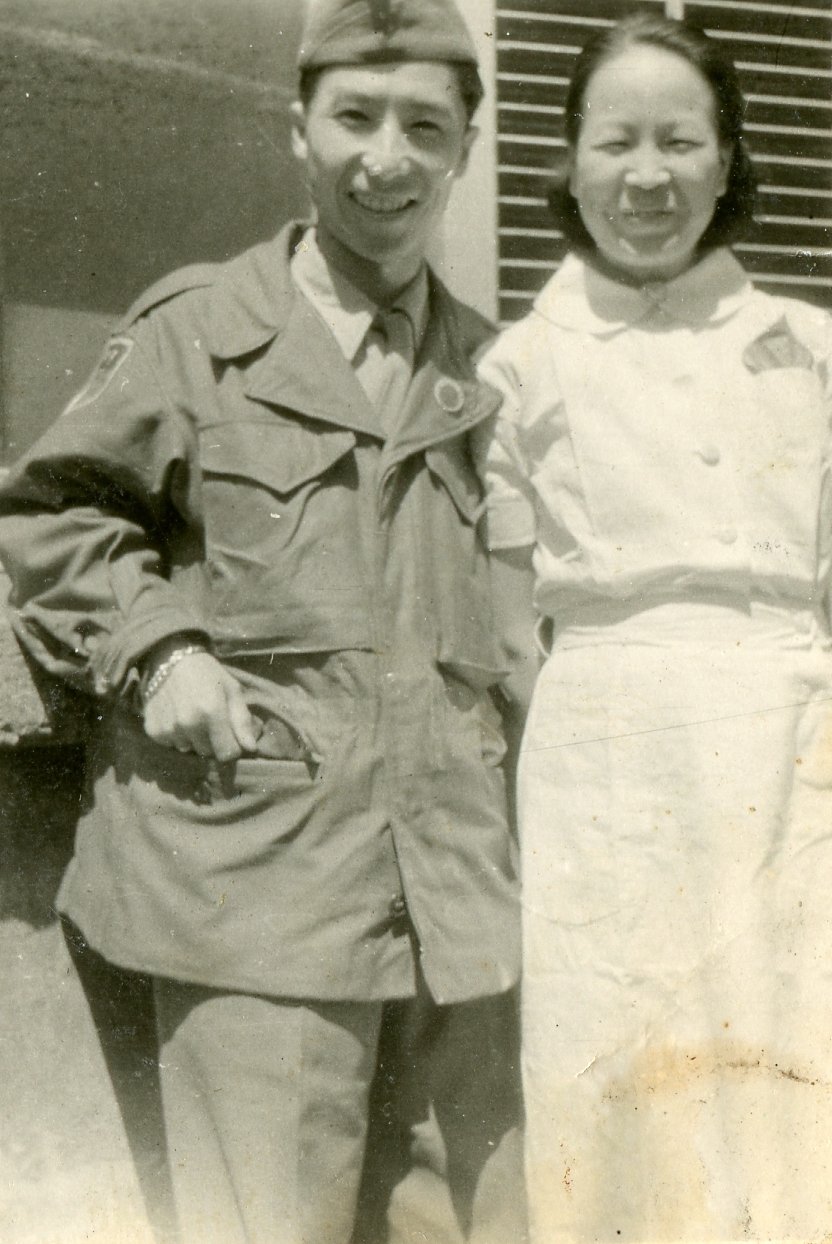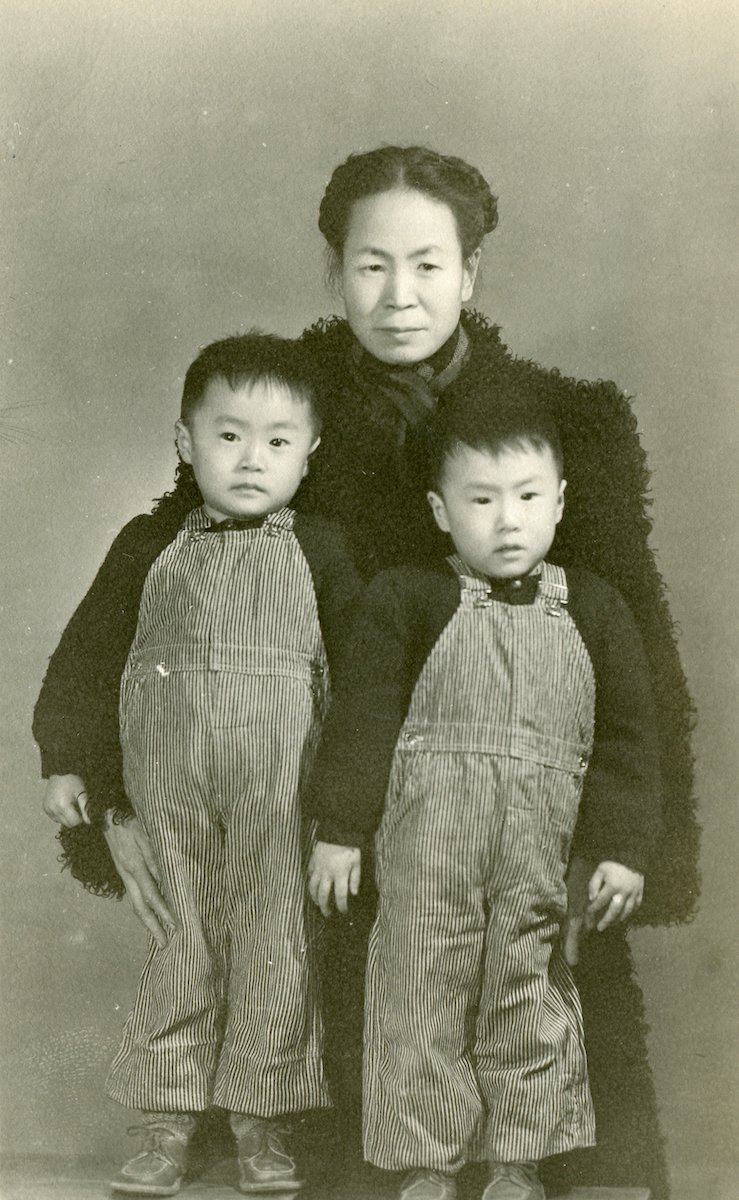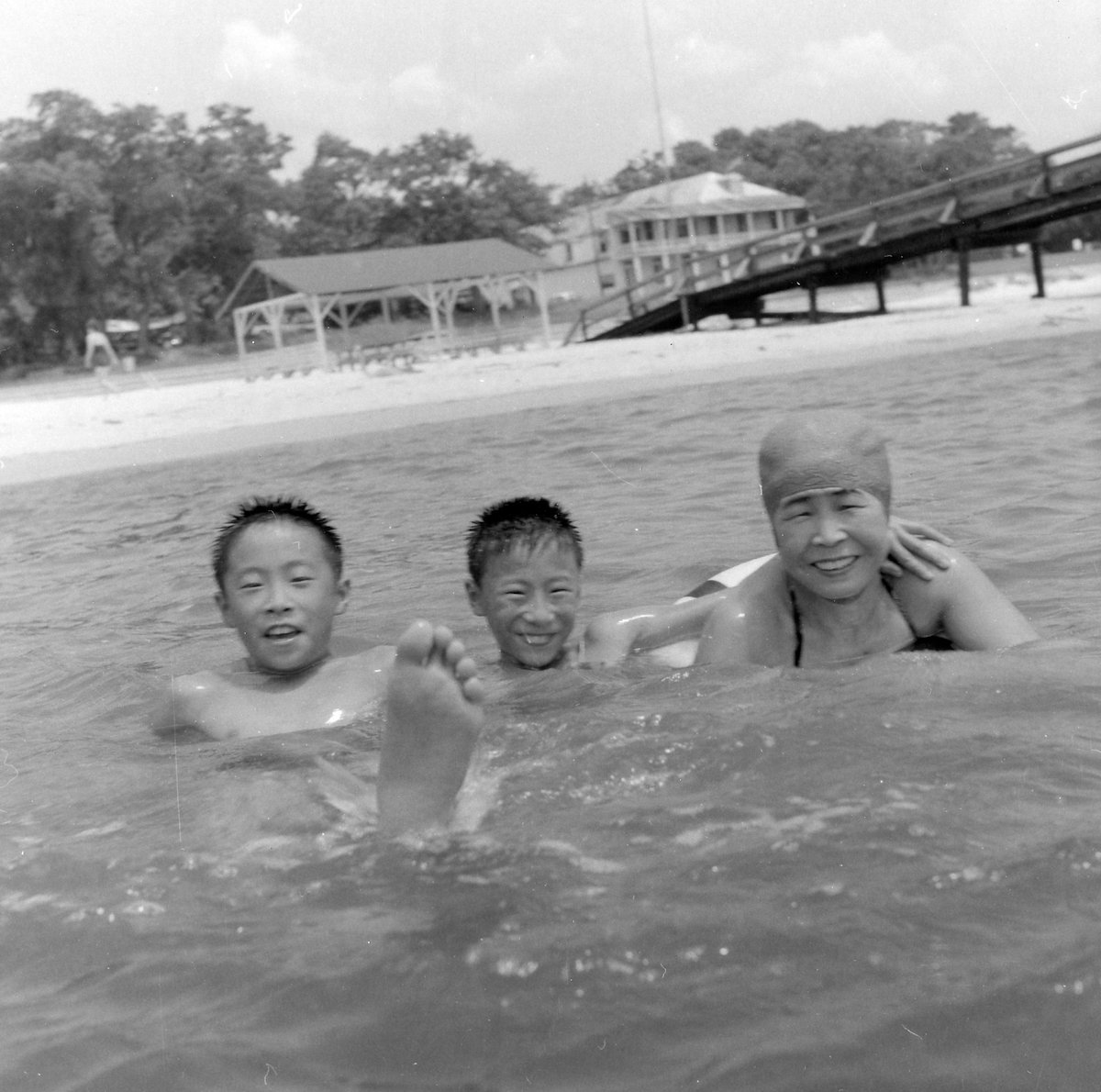Portraits of My Father
by Jessica Chen
b.1978, San Francisco
Dad Beside Me (At Home), 2019
This is Dangerous, 2019
Birthday Surprise, 2011
Corner View, San Francisco, CA 2022
Dad Shopping in the Kitchenware Aisle, 2019
Talking with Strangers, Pacifica, 2019
Mask at Dusk, 2020
Acts of Service, San Francisco, 2021
Family Backyard BBQ, July 2022
Dad and I, Los Angeles, CA 2010
Dad meets His Grandson. June 2022
This portrait project came about after having returned from living across the country in New York for over a decade. In 2018, my father was going through health problems and asked me to return to California. The week before his surgery, I packed up my life, belongings and returned home. It was a tough decision, but my father supported me in all the ways that I needed growing up; now I could see it was time to return the honor and be there for him.
When I started this portrait series, the impetus was to make up for lost time. I naturally document the world around me, so I felt it was a good project to help keep the memories of my father always with me. I know the time will come when I will need to see them and be reminded of him. For now, I am grateful for the time with him and cherish the present moment I am in.
These portraits of my father are made candid, casual and unposed. It is my way of photographing his essence honestly and without much pretense, interference or direction. The “where” and “when” are not as important to me, as long as I recognize his essence in each photograph. In time, these photographs will give me the comfort I need when I have to walk this life without him by my side.
The Family Album: From Beijing to Dallas (1936-1966)
by Jessica Chen
Within this selection of old photographs from my paternal grandparents' family albums, I am able to piece together a chronology of events based on their family portraits over the years. My grandmother Betty was left to raise two twin boys alone, because my grandfather was often away for years at a time.
My grandfather Joseph served in both the Chinese Army during the Chinese Civil War and was later recruited by the U.S. Army, stationed in Burma during the second Sino-Japanese war. During my grandfather’s time in the military, the scope of service spanned a wide range of experiences, from parachuting out of planes, to detonating bridges to help obstruct the Japanese Army from advancing further into China, to attending peace talks between party leaders.
From the 1930s to early 1960s, China was plagued with decades of war and turmoil. During this time, my grandfather became the sole survivor of his family of 13 siblings. Each family portrait that has survived, is both a testament of perseverance and a chronological marker. The passing of time in the faces of my father and uncle growing up make for a compelling documentation of how long and arduous the journey from Beijing to Dallas was for my grandparents and their family. With the aid of missionaries and friends in America, my grandfather eventually was able to bring his family to America in 1955.
My grandmother, father and uncle joined my grandfather in Los Angeles, where they then took a road trip across the country to Dallas, Texas. My father and uncle spent the second half of their childhood growing up in Dallas; it was in America that my father was able to get to know his father better. In Dallas, my grandfather became an entrepreneur, building out a family business from the ground up. He worked long hours, often working late into the night. His store eventually became a fixture in the community where he sold various wares and goods representing other stores from across the country, known as Joe’s Imports Co.
The portraits made in Dallas show that life was stable, but significantly different. My grandmother's posture and facial expressions are softer, happier, and more carefree, though not entirely stress free. They lived during a time of deep racial inequities and civil unrest. My father and uncle were the only Chinese kids in their school and it was easy to see they stood out from everyone else.
My father and uncle faced bullies and harassment from schoolmates and teachers alike. They made for easy targets mostly because they were smaller, skinny and Chinese. My father often recounts how every time a new kid came to their school, they immediately sought one of the Chen brothers to pick a fight with. My father never backed down, but he also rarely had to throw a punch. The school yard fights were often broken up before anyone got hurt. The fights were mostly about showing up and sizing the other kid up, usually that was enough to deter the new kid from picking on them. Eventually, there was acceptance, as they were endearingly referred to as the Chen brothers or Joseph's boys in their neighborhood community.
When I look at these photographs from my father’s childhood, I can’t help but see both the American dream and the erasure of their Chinese identity. My family’s history is entwined in the collective American history, like many families that share similar stories, their stories are nowhere to be found in our schools’ history books. Such stories are often left out, major historical events outside the U.S. lack detail and accuracy, if included, they often are reduced to a footnote or a singular paragraph at best. I ask, what has changed since my grandfather and father’s generation?
It is in the stories we share, we have an opportunity to push back against the erasure of our families' histories and life experiences. This country’s long-standing discriminatory laws and ideology, most notably the Chinese Exclusion Act of 1882, made life unnecessarily difficult for immigrants coming to America. My grandparents having to assimilate to survive, that inner and outer struggle, carries over to the next generation and the next. The responsibility rests on the shoulders of the surviving generation to pass the baton and to grasp the importance of sharing the life stories and oral histories of our elders.
It is in this act of sharing the stories we inherit, that become a powerful tool and can be a catalyst for purposeful change. Being able to see my grandfather and grandmother’s life through their photographs and listening to my father’s stories over the years, I have discovered new connections to historical events that I hadn’t realized were intertwined. Each new discovery brings a new piece of the puzzle, shedding light and providing a new sense of wholeness to my own identity.
It is the stories we tell the world and ourselves that make all the difference in the lives around us. These stories have the power to shape the next generation, inspiring and promoting a better understanding of who we are in this world together. Each generation needs the stories of their elders, because inevitably, they will become the next authors, tasked with writing the next chapter in our collective history books. It is vital for those who came before us and for those who will walk ahead of us, that we all get the chance to tell our stories.
Jessica Chen
Bio
Jessica Chen is a fine art, documentary and street photographer based in the San Francisco Bay Area. A native Californian, Jessica was born in San Francisco and grew up in Pacifica, a coastal beach town along the Pacific Coast Highway.
Early in her career, Jessica worked many jobs covering a wide spectrum of creative fields. For over a decade, she worked as an illustrator, graphic designer and web designer for notable artists, publications and art institutions. After interning at Maysles Film in Harlem, NY, and working alongside Albert Maysles and his family, Jessica fell in love with the cinéma vérité style of storytelling. She went on to work for post production studios contributing to numerous award winning documentary films, such as Remnants of a War (2008) and My Perestroika (2010). She continued to work in documentary film in various roles for many years before returning to photography professionally..
Jessica earned a B.S. in Environmental Design and a B.A. in Studio Art from UC Davis. She went on to earn an M.F.A in Narrative and Documentary Film from Parsons at the New School in New York. Jessica is a member of the American Photographic Artists, Women In Street and the East Bay Photo Collective. Her photographs have been published and widely exhibited in group exhibitions across the country and abroad.








